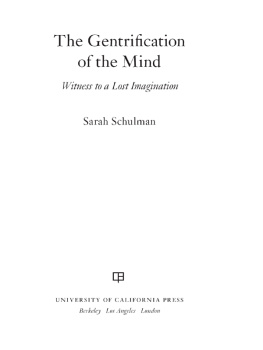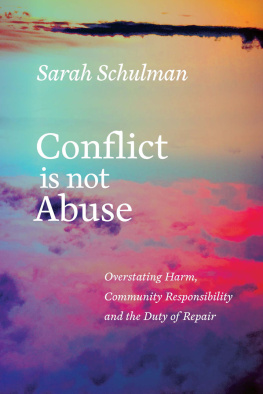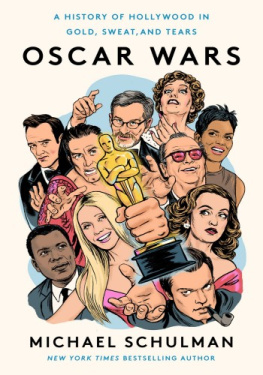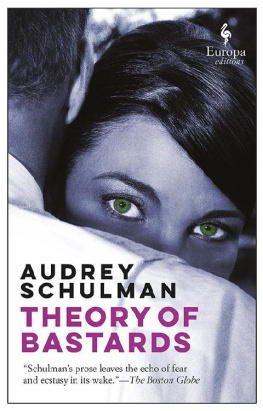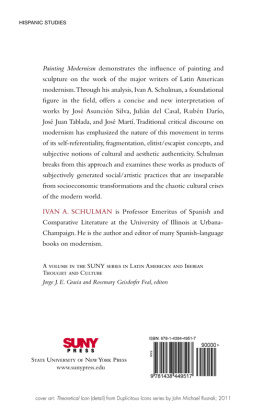This book was written with support from The Virginia Colony for the Creative Arts, Ledig House, and The Norman Mailer Writers Colony.
Thanks to my friends from the neighborhood, especially those of you on Ninth Street who have trod this path with me these many years. Special thanks to Dudley Saunders for reading and to Jack Waters, Peter Cramer, Bina Sharif, Kathy Danger, and the other survivors of AIDS and gentrification with whom I share this city.
INTRODUCTION
Making Record from Memory
The first step in liquidating a peopleis to erase its memory. Destroy its books, its culture, its history. Then have somebody write new books, manufacture a new culture, invent a new history. Before long the nation will begin to forget what it is and what it was. The world around it will forget even faster.
Milan Kundera
It's 2001. I am in Los Angeles trying to break into film or television. It's been a tough day. I had a meeting with a film producer/agent/manager that was not encouraging. In New York, people have meetings because they have something to accomplish together. They need to sit down and work out the details, or else they are hoping to find a place in each other's lives: as lovers, collaborators, friends. But LA is different. People have meetings so that, if one of them should ever become famous in the future, the other will have met them. I know this because my friend Dudley, transplanted from the East Village to West Hollywood, lent me his copy of the Hollywood primer Hello, He Lied by Linda Obst so that I can be prepared for these strange rituals of nothingness.
So, what novelist are your novels most like? she asks.
I'm stymied. This is not a question that novelists ask ourselves, since the goal is to have something intimate and specific about our voices. Think, Sarah, quick. My mind is spinning. Think of someone she may have heard of.
Uhm. Philip Roth?
I'm sorry, she said. I'm not familiar with him.
Later I'm driving home in my white rental car, knowing I should have said John Grisham. I hate myself. I'm an idiot. No matter how much I dumb down, it is never dumb enough. I flip through the radio stations, determined to learn the latest hits and become more in tune with the pop culture I'm trying to penetrate but bored to tears, end up settling on NPR. Bizarrely, this very day is the twentieth anniversary of AIDS. Decontextualized by palm trees, I listen. The announcer is discussing events that I know intimately, organically, that have seared the emotional foundation of my adult life. And yet there is a strangely mellow tone to the story. It's been slightly banalized, homogenized.
This is the first time I've heard AIDS being historicized, and there is something clean-cut about this telling, something wrong. Somethinggentrified.
At first America had trouble with People with AIDS, the announcer says in that falsely conversational tone, intended to be reassuring about apocalyptic things. But then, they came around.
I almost crash the car.
Oh no, I think. Now this. Now after all this death and all this pain and all this unbearable truth about persecution, suffering, and the indifference of the protected, Now, they're going to pretend that naturally, normally things just happened to get better.That's the way we nice Americans naturally are. We come around when it's the right thing to do. We're so nice. Everything just happens the way it should.
This? I realize the way one realizes that the oncoming train is unavoidable and I'm stuck on the track. This is going to be the official history of AIDS?
I pull the car over, whip out my brand-new first cell phone, and call Jim Hubbard in New York. We have to do something, right now. In 1986 Jim and I cofounded the New York Lesbian and Gay Experimental Film Festival (now known as MIX, and approaching its twenty-fifth year). Building a community institution with someone is a very bonding experience, and I know that together we can find a way to change this distortion of AIDS history. Jim is on it immediately. We cannot let the committed battle of thousands of people, many to their deaths, be falsely naturalized into America coming around. No one with power in America comes around. They always have to be forced into positive change. But in this case, many of the people who forced them are dead. The ones who have survived are in a kind of hell of confusion and chaos that feels personal but is actually political, whether they have moved on and are living their lives or are confused, displaced, lost. We have responsibilities, after all, we the living.
Ok, he says. And then it begins. The investigation.
Cut ahead to October 2010. For the past nine years Jim and I have been codirecting the ACT UP Oral History Project. We have conducted 128 long form (two- to four-hour) interviews with surviving members of ACT UP, New York (AIDS Coalition to Unleash Power). And we have a waiting list of one hundred more to go. We have a website (www.actuporalhistory.org)where we post five minutes of streaming video of each interview and where viewers can download the entirety of each transcript for free. To date over eighty thousand people have downloaded these transcripts, many from Eastern Europe and Asia. We assume they are people with AIDS, in countries with no AIDS activist movement, who are looking for information. Jim has preserved two thousand hours of archival footage, which we have made available for free at the New York Public Library. Jim is now making a feature-length documentary,

